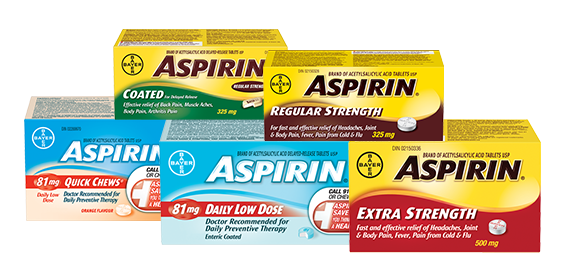Aspirin Reduces Risk Of Colorectal Cancer Risk In Patients With Lynch Syndrome. Preventive Effects Are Long Lasting
Source: Aspirin and Cancer Jun 13, 2020 4 years, 10 months, 1 week, 6 days, 15 hours, 15 minutes ago
Aspirin and Cancer: Oncology and medical researchers have discovered from an international clinical trial that a regular dose of aspirin taken to reduce the risk of inherited bowel cancer can have long lasting effects even up to 10 years after stopping treatment. The clinical trial known as CAPP2 involved patients with Lynch syndrome from around the world and revealed that two aspirins a day, for an average of two-and-a-half years, reduced the rate of colorectal cancer by almost 50 percent.

The study findings have been published in the medical journal: Lancet.
https://www.thelancet.com/journals/lancet/article/PIIS0140-6736(20)30366-4/fulltext#%20
The clinical study led by experts at the Universities of Newcastle and Leeds in the UK is a planned double-blind 10-year follow-up in which half of 861 recruits received 600mg of aspirin daily between January, 1999, and March, 2005 and were registered and monitored with a comprehensive national cancer data registry for up to 20 years.
Lead study researcher Professor Dr Sir John Burn from Newcastle University told Thailand Medical News, "I had an idea 30 years ago that people with a genetic predisposition to colon cancer could help us to test whether aspirin really could reduce the risk of cancer. Patients with Lynch syndrome are high risk and this offered statistical power to use cancer as an endpoint."
The research findings further strengthens the National Institute for Health and Care Excellence (NICE) recommendation on taking daily aspirin for those at high risk and supports wider use of aspirin to prevent cancer.
From the preliminary five-year data from the CAPP2 trial, NICE recommended that aspirin should be offered for the prevention of colorectal cancer in adults with Lynch syndrome.
Accordingly, it took the research team a long time to start the trial and to recruit enough people in 16 countries, but this study has finally given us an answer. The study involved 861 patients with Lynch syndrome, which affects about one in 200 people in the population. These people have a genetic problem with DNA repair, making them at much higher risk of cancers like colorectal cancer, womb cancer and many other types of cancer.
A group of 427 patients were randomized to aspirin continuously for two years and 434 were allocated to placebo group and then they were all followed for 10 years. Out of those given two aspirins each day (600mg) there were 18 fewer colon cancers, representing a drop of 42.6 per cent. When all 163 Lynch syndrome cancers are included in the analysis, such as cancer of the endometrium or womb, there was an overall reduced risk of cancer of 24 per cent in those taking aspirin or 37 per cent in those who took aspirin for the full two years.
Dr Burn added, "Two aspirins a day for a couple of years gives protection that lasts more than 10 years. For people at high cancer risk, the benefits are clear that aspirin works.”
The research team has also started another new international trial called CaPP3 to see if smaller doses of aspirin will work just as well.
For more about
Aspirin a
nd Cancer, keep on logging to Thailand Medical News.
